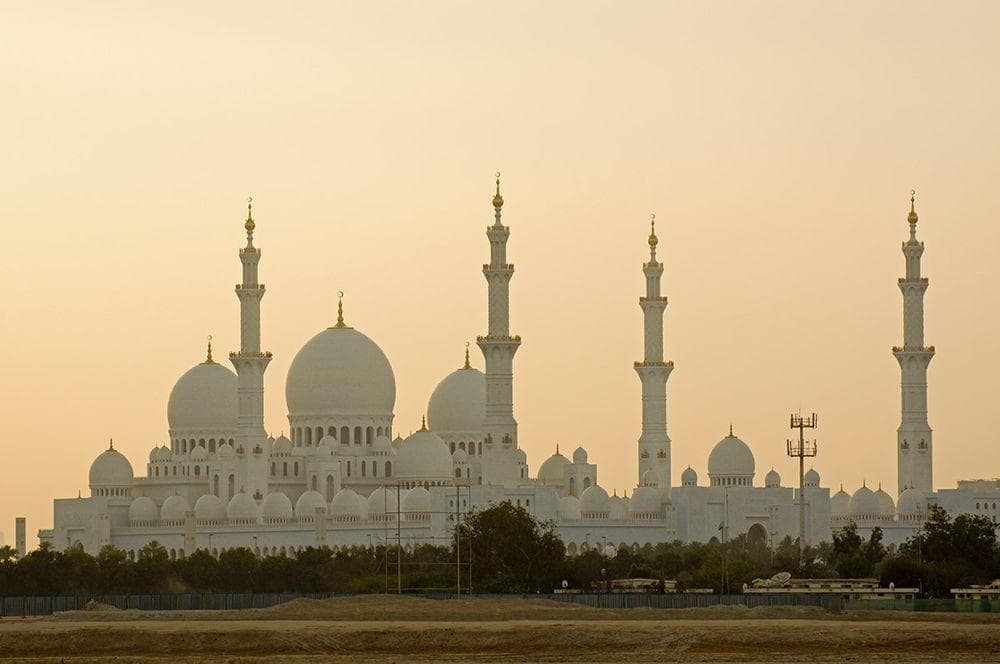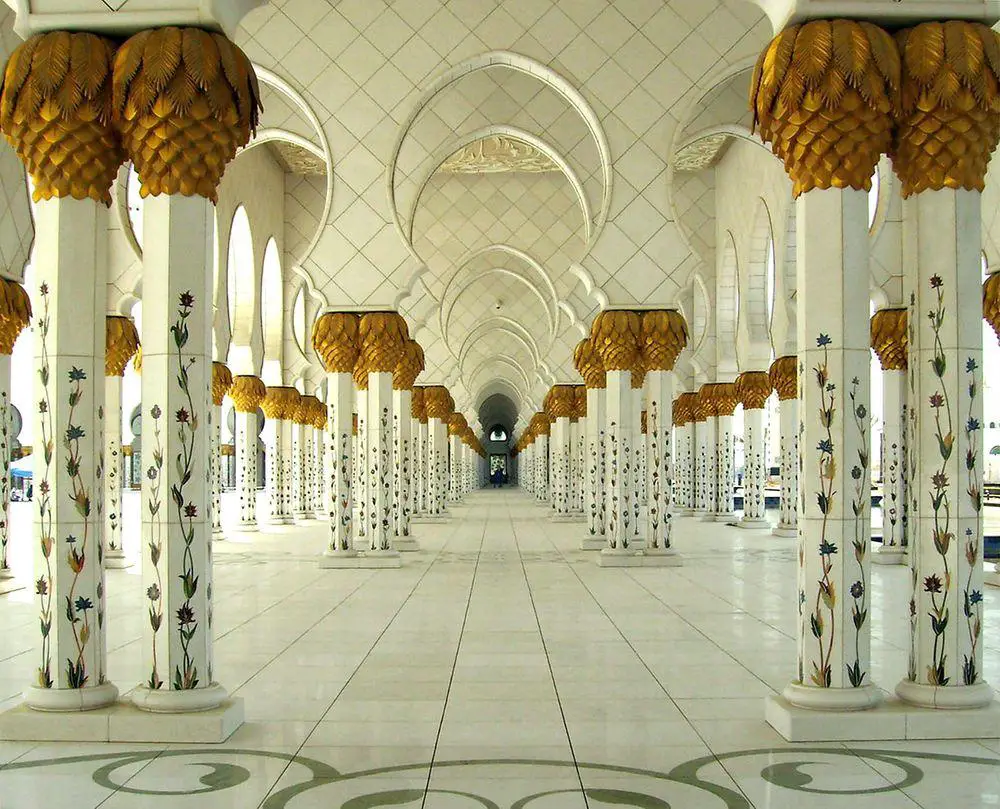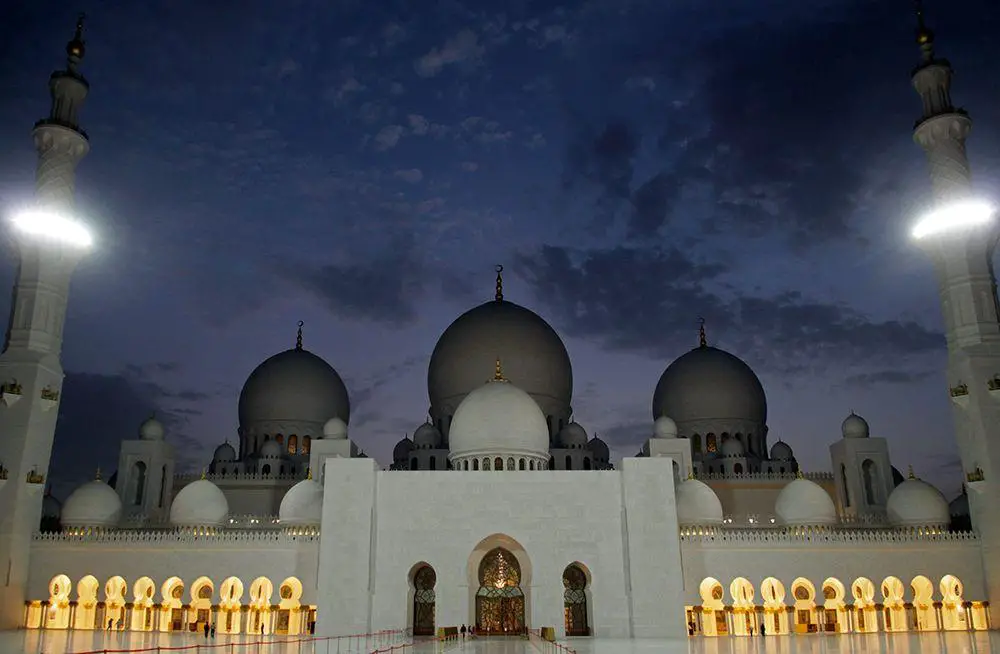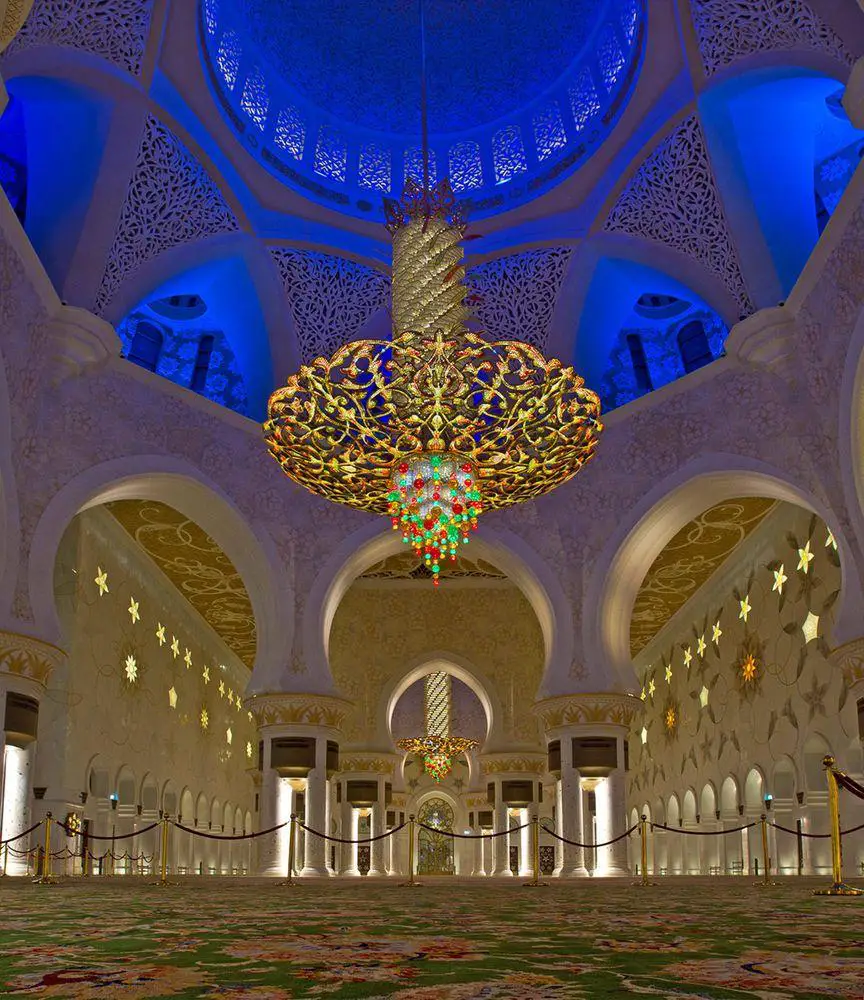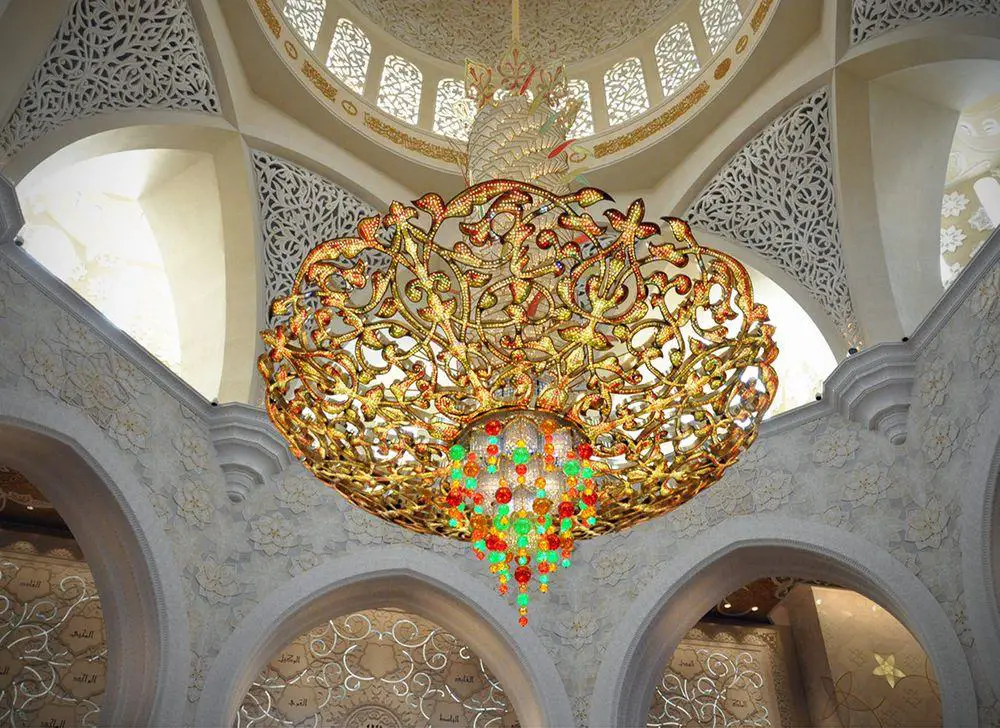World 🢖 Asia 🢖 United Arab Emirates
Islamic shrines 🢔 Religious architecture 🢔 Architectural wonders 🢔 Categories of wonders
Wonder
Sheikh Zayed Mosque, Abu Dhabi
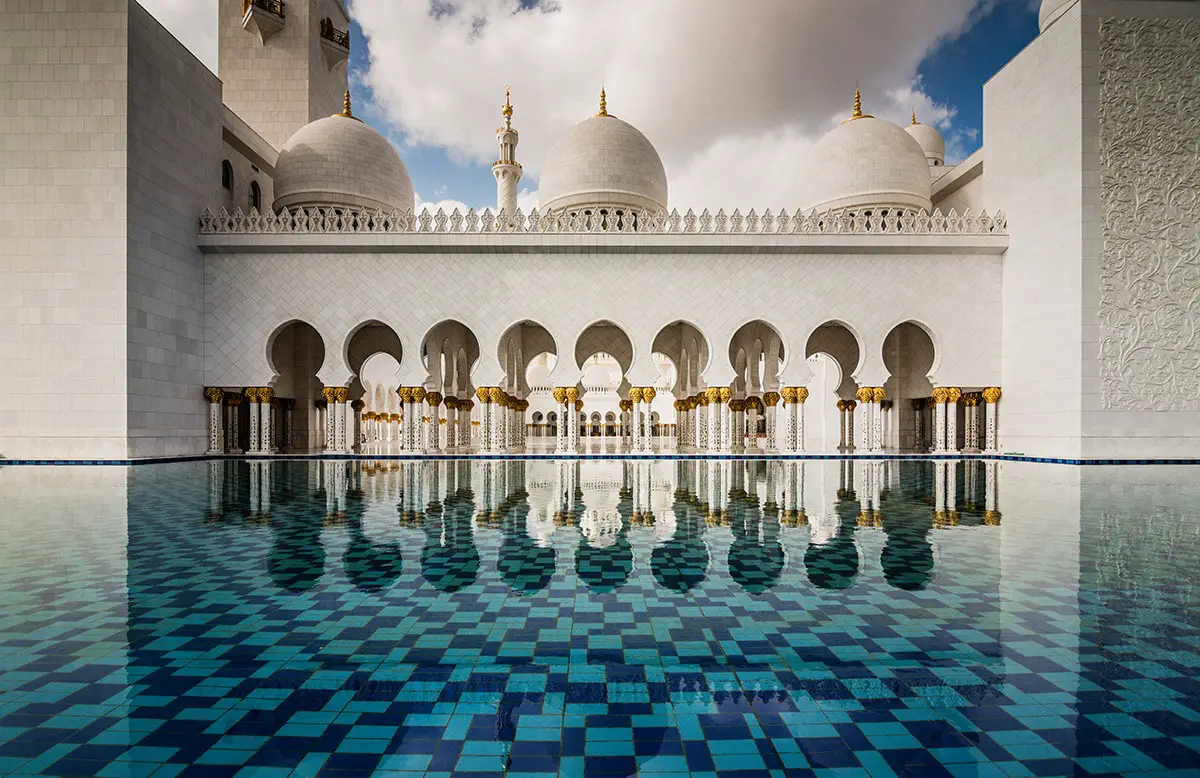
 In short
In short
The new Sheikh Zayed Mosque testifies the ambitions of Abu Dhabi to become a regional center of culture and religion.
 45.7%
45.7%
GPS coordinates
Location, address
Name in Arabic
Age
Religion
Map of the site
If you see this after your page is loaded completely, leafletJS files are missing.
 In detail
In detail
It is one of the most beautiful religious buildings of modern times and it represents a vision of a strong and harmonious Arabic society, assured to be tolerant to other religions and cultures.
Sheikh Zayed
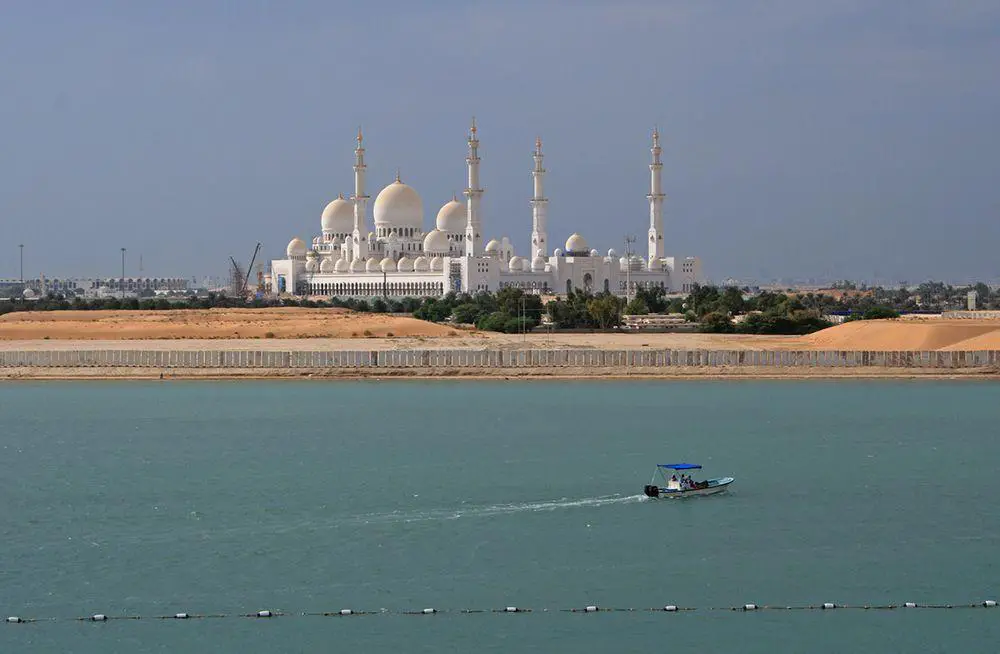
In the grounds of this mosque rests the founder of the United Arab Emirates – Sheikh Zayed bin Sultan Al Nahyan (1918 – 2004).
This great statesman founded United Arab Emirates – an unusual Arab state, which for decades invests its oil wealth into the welfare of its citizens and is comparatively tolerant and open to other cultures. He saw the importance of the dialogue between religions, cultures and states.
Construction of the main mosque in Abu Dhabi was initiated by Sheikh Zayed. He wanted to establish a structure which unites the cultural diversity of Islamic world and even – whole world, to unite the historical and modern values of architecture and art.
Main mosque in the country
The great development of nearby Dubai has somehow overshadowed the capital city of the United Arab Emirates – Abu Dhabi. Dubai is evolving into a surprising show-off of the incredible wealth of the country, it is a kind of playground for world’s richest citizens. Abu Dhabi meanwhile is evolving into a regional hub of culture and style.
Sheikh Zayed Mosque was built as key place for worship in the country, as an important centre of learning with large library.
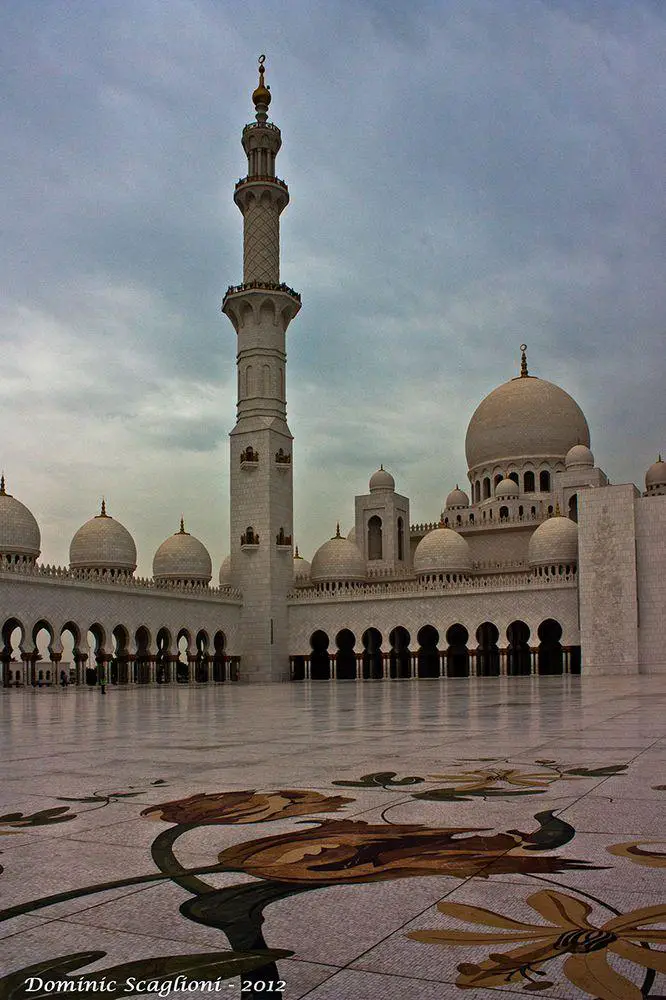
Mosque was constructed in a little more than in decade: in 1998 – 2009, construction costs amounted to 545 million USD.
Size
The size of the mosque matches this ambition: currently, it is the eighth largest mosque in the world. The whole structure and its surroundings take 56 ha, the main building is 224 by 174 m large.
Mosque can accommodate more than 40,000 people, the main prayer hall – more than 7,000 people. There are two more large prayer halls (one exclusively for women), each can accommodate 1,500 people.
Architecture
Design of the mosque is inspired by diverse styles of Islamic architecture. More visible is the impact of Mughal and Moorish architecture. Mosque has many similarities to Bashahi Mosque in Lahore (floorplan and other details) and Hassan II Mosque in Casablanca (archways and other details).
Main building has 82 domes of seven different sizes. Highest dome rises 85 m tall, its outer diameter is 32.2 m.
Each of the four minarets is 107 m high.
Materials
The structure includes materials and craftmanship from the whole world, e.g. in the construction of mosque were involved 38 construction companies. For most part it is built from natural materials – marble, gold, semi-precious stones, crystal, ceramics. Marble was brought from Macedonia, Italy, India, China.
Outstanding craftmanship
The harmonious whole of the structure consists of numerous outstanding examples of craftmanship.
One is the world’s largest carpet in the main prayer hall. This carpet is made in Khorasan, 5,627 m² large, 47 tons heavy.
Another is seven grand chandeliers, which are made from millions of Swarovski crystals by "Faustig" (Germany). In the main prayer hall is the largest one – 10 m in diameter, 15 m high and 9 tonnes heavy. This is the third largest chandelire in the world.
Courtyard of the mosque is adorned with world’s largest marble mosaic – this floral mosaic has area of some 17,000 m². You can clearly see it when zooming into satellite image (see on the right side of this page!).
Very special is the lighting of mosque, it reflects the phases of the Moon. Bluish gray clouds are projected on the walls of mosque in the night.
There are multiple other surprising elements. 96 columns in the main prayer hall are inlaid with mother of pearl – rare example of this art nowadays. Qibla wall is adorned with 99 attributes of God and lighted with fibre-optic lighting.
But may be the most surprising is the skill of designers who managed to unite these outstanding and often – almost opulent works of art into single, harmonious structure.
 Linked articles
Linked articles
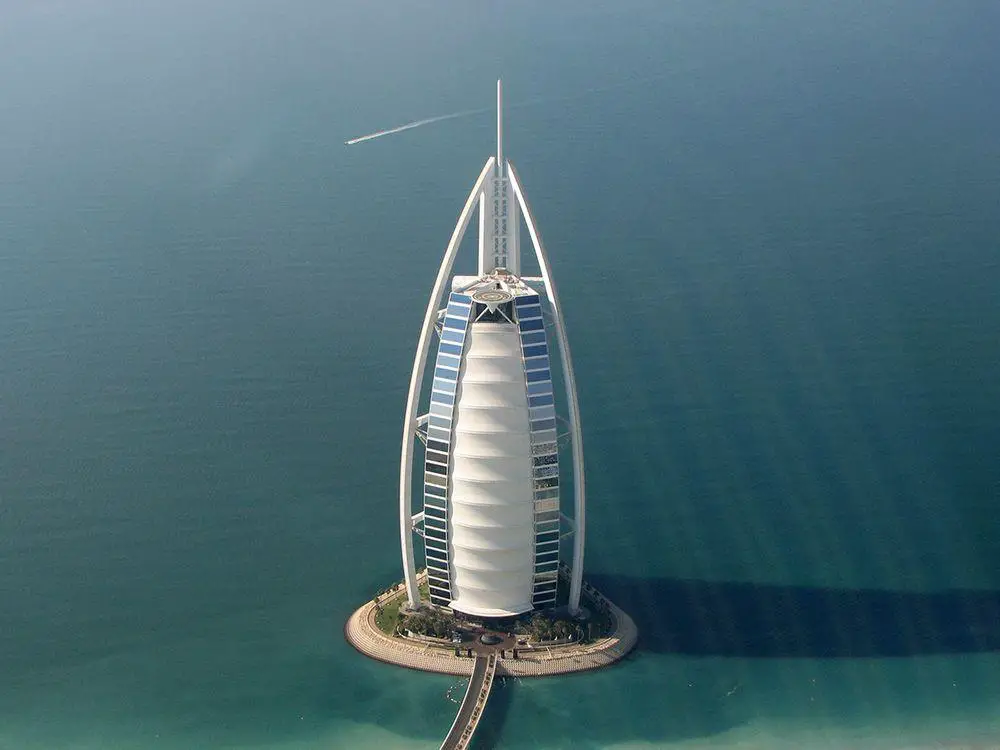
Wonders of United Arab Emirates
Arab countries keep the wondrous spirit of One Thousand and One Nights alive – and none does it better than the United Arab Emirates. This small country surprises the whole world with the realization of incredible ambitions.
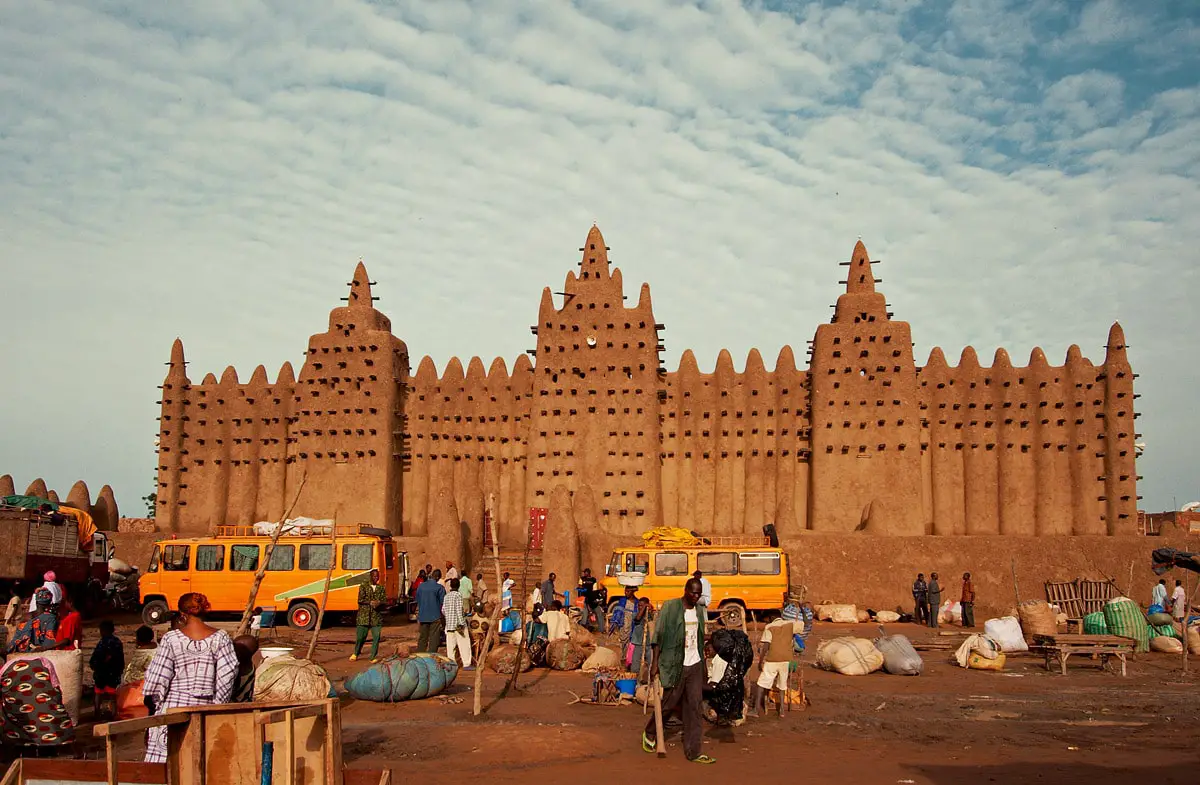
Religious architecture
Since ancient times human talents and skills have been expressed in religious architecture and arts, and traditions and rituals have evolved around pilgrimage sites. Religious buildings represent a major part of the highest achievements in architecture and crafts.
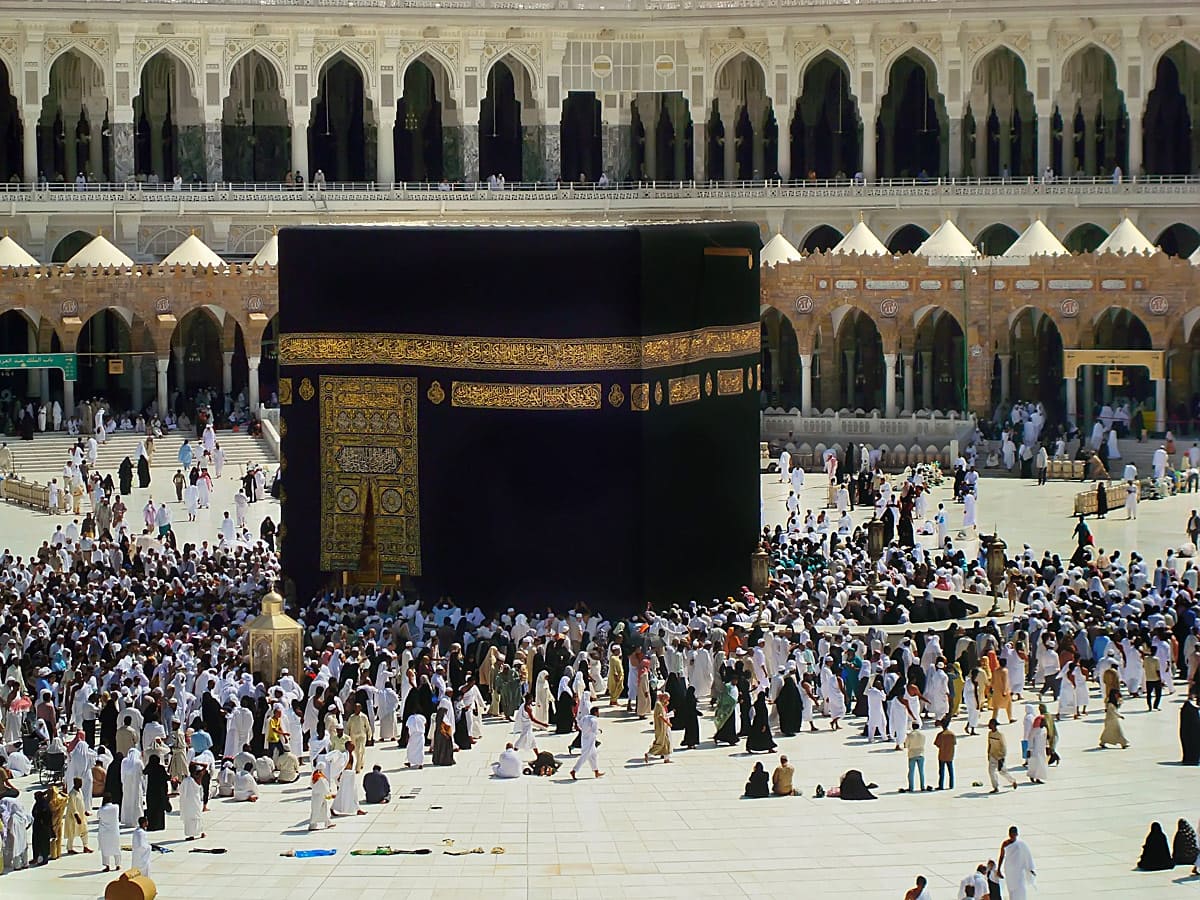
Islamic shrines
Place for worship in Islam is called a mosque. Mosques serve also for education, news exchange, and dispute settlement.
Initially, in the 7th century mosques were unpretentious, large halls for gatherings. Over time, as Islam was spreading, there developed diverse, locally adapted architectural forms of mosques.
 Recommended books
Recommended books
Lonely Planet Pocket Abu Dhabi
Lonely Planet Pocket Abu Dhabi is your passport to the most relevant, up-to-date advice on what to see and skip, and what hidden discoveries await you. Promenade along the waterfront Corniche, tour the magnificent Sheikh Zayed Grand Mosque, or relax at a sheesha cafe; all with your trusted travel companion. Get to the heart of the best of Abu Dhabi and begin your journey now!
Frommer’s Dubai and Abu Dhabi day by day
The book covers the best of Dubai & Abu Dhabi in one, two, or three days, thematic tours for every interest, schedule, and taste (including Arabian heritage tours and day trips to Sharjah, Al Ain, and Hatta), hundreds of evocative photos, bulleted maps that show you how to go from place to place, candid reviews of hotels, restaurants, shopping, and nightlife for all budgets, and a tear-resistant foldout map — enclosed in a handy plastic wallet you can also use for tickets and souvenirs.

